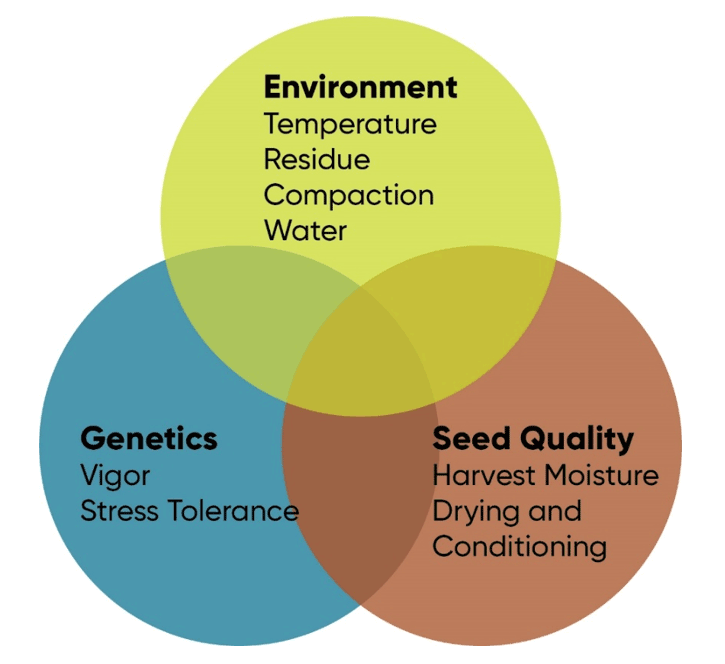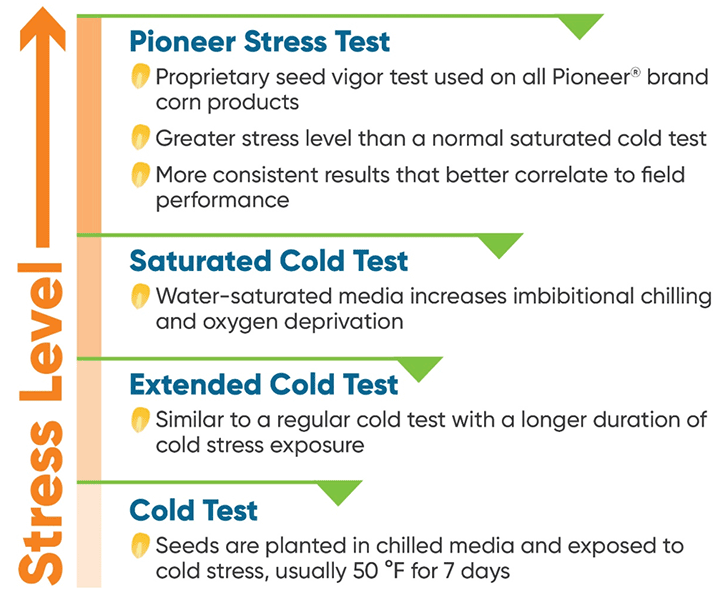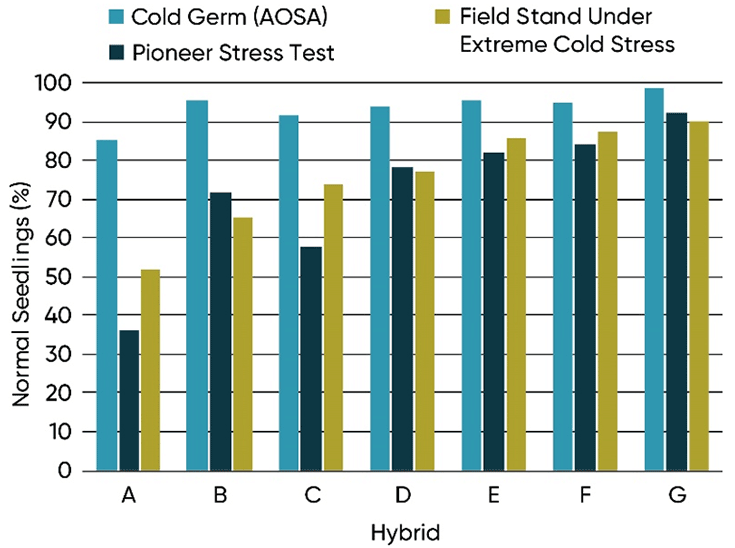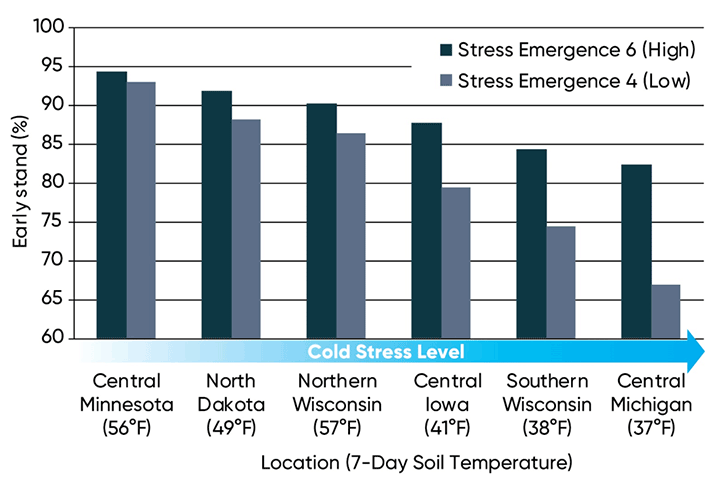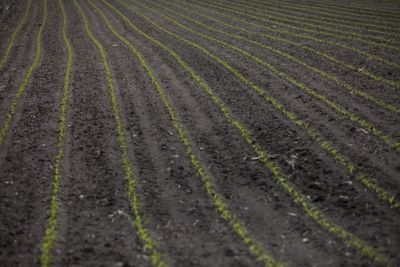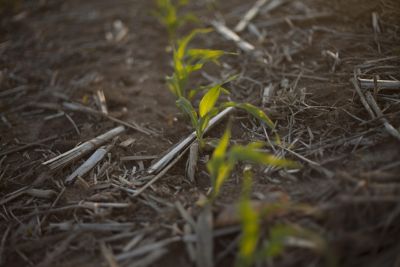Get a glimpse into how we develop and test new corn products for the factors that matter in your fields — so the corn in your Pioneer bag performs to its optimum potential.
Watch research toursBuilding Better Quality Seed With Rigorous Vigor Testing
Written by Ross Ennen, Sr. Research Associate - Seed Science; Eric Thorson, Supply Chain Manager; Mark Jeschke, Agronomy Manager; Neal Hoss, Product Line Manager – Corn; and Jeremy Johnson, Global Seed Production Research Lead.
